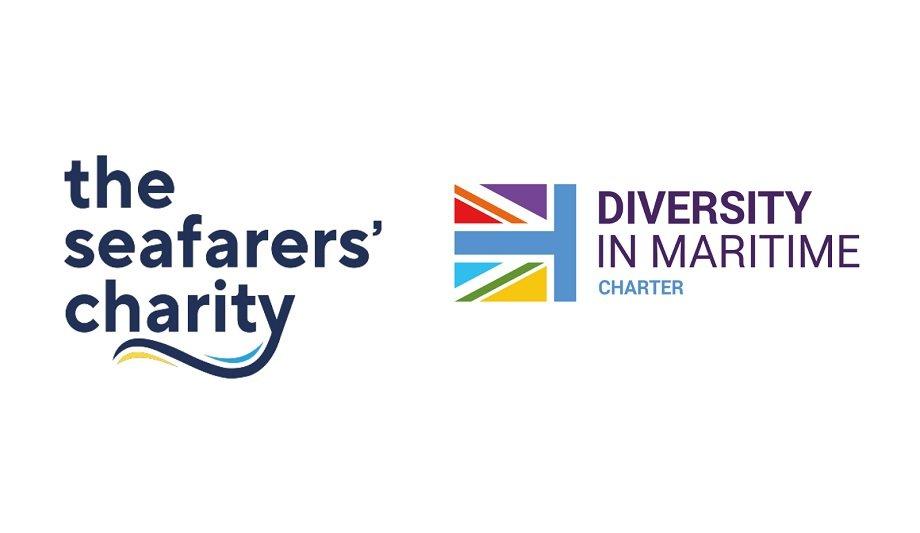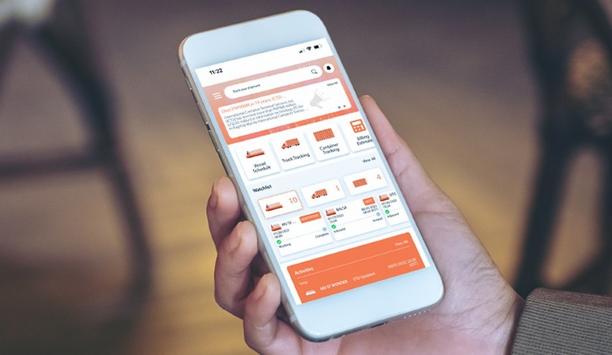Maritime UK, the umbrella body for the maritime sector, has welcomed The Seafarers’ Charity as the latest organisation to join the Diversity in Maritime Charter.
The Seafarers’ Charity has the vision to create a world where seafarers and their families are valued and free of need and disadvantage. They’ve been working towards this goal since 1917 when they originally launched as the King George’s Fund for Sailors.
Seafarers’ Charity
The Seafarers’ Charity is an evolving, forward-looking charity building on past successes but expanding its capabilities to make a genuine difference. Their grant giving to maritime charities brings life-changing impact for many who work or have worked at sea and their families.
They seek to reduce hardships experienced by seafarers by enabling environments where they can thrive. Ultimately, supporting their practical and welfare needs at home, in port, and at sea, often far from home.
Diversity in Maritime Charter initiative
Signing the Diversity in Maritime Charter commits organisations from across the maritime sector to take proactive responsibility
The Diversity in Maritime Charter is a pivotal initiative in the Diversity in Maritime programme. Signing the Diversity in Maritime Charter commits organisations from across the maritime sector to take proactive responsibility for closing the diversity and inclusion gaps within their workforce.
Fourteen organisations are on the Charter journey including Bruntons Propellers, Shoreham Port, Fleetwood Nautical Campus, MFB Solicitors, Royal Fleet Auxiliary, Hutchison Ports – Port of Felixstowe, S&P Global (previously IHS Markit), PNTL, Forth Ports and ABP’s Southampton and East Anglia regions, GAC UK, BAE Systems and now The Seafarers’ Charity.
Charter organisation criteria
To become a Charter organisation, businesses must share baseline data regarding the proportion of women in their workforce and across their middle and senior management. They then set target data for either five or ten years into the future.
It also challenges the organisation to share where they are currently with their equality, diversity, and inclusion journey and put targets in place for growth.
Best practices platform
The targets form a large part of individual company action plans, which also include a commitment to implement specific projects and initiatives.
Throughout the life of the programme, Maritime UK regularly engages with Charter organisations to assess progress and identify areas for new programmes and activities whilst providing a platform to share best practices and challenges with others.
Seafarers’ Charity’s EEDI action plan
The action plan reaffirms The Seafarers’ Charity’s commitment to increasing awareness of EEDI
The announcement follows the revision of The Seafarers’ Charity’s Equity, Equality, Diversity, and Inclusion (EEDI) action plan for 2020-25. The action plan reaffirms The Seafarers’ Charity’s commitment to increasing awareness of EEDI throughout the sector.
Using their position in the maritime welfare sector to identify needs and opportunities to support all groups, including marginalised communities, to benefit from the diversity of the sector. In also looking at the diversity of governance for maritime welfare charities, Trustee boards can become more diverse which will progress an organisation. Since 2019, The Seafarers' Charity has offered grants of £5,000 to support beneficiaries to fund external governance and diversity reviews.
Diversity in Maritime programme
Charter organisations are supported by Maritime UK’s Diversity in Maritime programme and supported by a wealth of resources, toolkits, networks, and initiatives including:
- Diversity in Maritime networks: Four networks, Women, Mental Health, Pride, and Ethnicity, form part of the Diversity in Maritime programme. The networks bring together individuals with protected characteristics, and allies, from across the maritime sector in safe-space environments to share good practices and discuss barriers faced. The networks are supported by four working groups that create solutions to combat barriers.
- Online toolkits: The continuously updated online Mental Health and Diversity in Maritime toolkits share best practice guides and policies.
- Interview Pool: Which loans maritime women to companies that may lack diversity on interview panels? Research by the Women in Maritime Network identified that more diverse interview panels or panels with HR professionals with diversity are more likely to recruit a diverse workforce. However, several smaller companies highlighted that they do not have access to such recruiters within their staff. The interview pool provides a facility for these companies to access relevant skills and expertise.
- Speaker Bank: Provides a database of diverse speakers for panels and conferences with specific industry expertise.
- Book Club: Ethnicity in Maritime Book Club involves a series of informal and intimate online/hybrid meet-ups that allow its members to read, listen and discuss books that broaden the knowledge and understanding of race and the impact of racism.
- Holistic Approach to Mental Health and Wellbeing: An initiative that will outline a holistic approach to enable the maritime sector to tackle the breadth of mental health and wellbeing.
- LGBT+ Industry Roundtables: The roundtables commenced during Pride month to bring together network members along with senior executives from maritime businesses and organizations to share ideas on how to ensure maritime is welcoming for LGBT+ people.
The first step to becoming a Charter Company is to sign the Women in Maritime Gender Pledge and Mental Health Pledge. The Pledges demonstrate commitment from maritime executives to making progress on diversity and inclusion.
Diversity in Maritime Charter
The Charter is an important step on The Seafarers Charity’s journey to creating a more inclusive sector"
Chrissie Clarke, Head of People Programmes and Operations, Maritime UK said, “Maritime UK is delighted to welcome The Seafarers Charity to the Diversity in Maritime Charter."
"The Charter is an important step on The Seafarers Charity’s journey to creating a more inclusive sector, whether at sea or on shore, and their progress will help move the sector forward.”
EEDI journey
Jo Doheny, Impact Executive and one of the founding members of the staff-led Diversity group at The Seafarers’ Charity said, “We are so happy to have become a Diversity in Maritime Charter organisation and look forward to continuing our equity, equality, diversity, and inclusion (EEDI) journey with Maritime UK and the other Charter organisations."
"Our staff-led Diversity working group was formed in 2020 in response to the death of George Floyd."
Meetings and training
Team members are open about the difficult nature of some of the issues they talk about in the group
"The group aims to pool our ideas, lived experiences, and thoughts to become more understanding and inclusive working together to better embed EEDI into all aspects of our culture, policies, and processes."
"We have benefited from regular meetings and training around issues including Equality, Diversity and Inclusion, Mental Health Awareness, and Unconscious Bias and look forward to continuing our EEDI journey.” Team members are open about the difficult nature of some of the issues they talk about in the group.
Mental health
Freddy Onono, Finance Analyst and also one of the original members of the Diversity group at The Seafarers’ Charity said, “It’s been a journey and for everybody, this is an ongoing learning process. Something I understand a lot more about now is mental health."
"I’m from Kenya in Africa and anyone suffering with poor mental health is really side-lined and culturally a mental illness is linked to a lack of intelligence or just hidden away. I have shared my new perspective on recognising and listening to people suffering from mental health problems not just with colleagues at work but also with my Kenyan friends and family because it has changed my thinking.”











